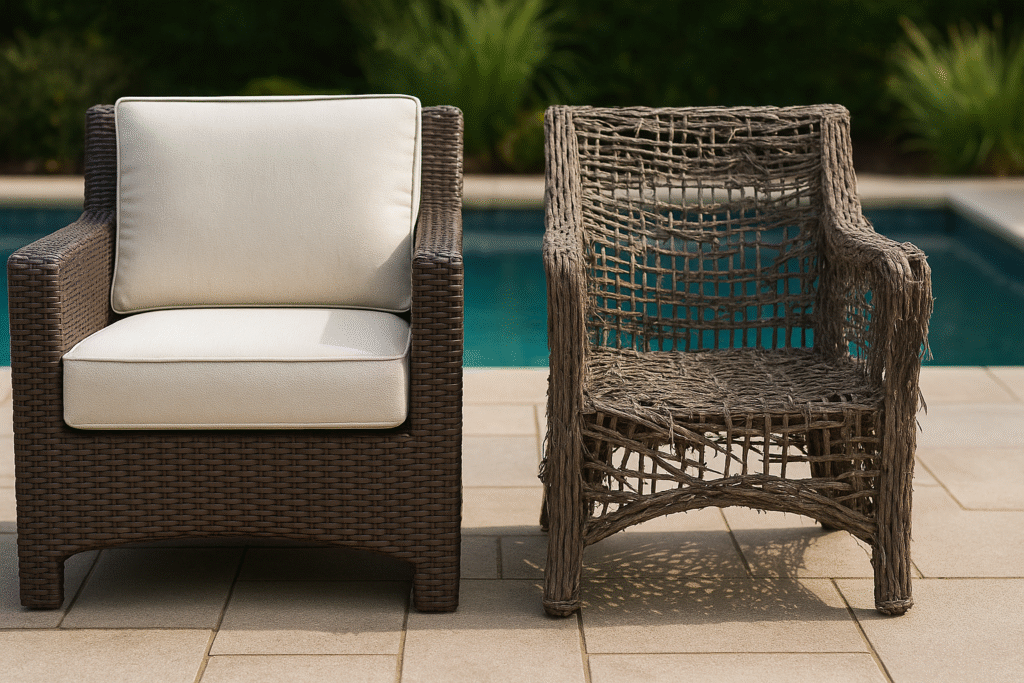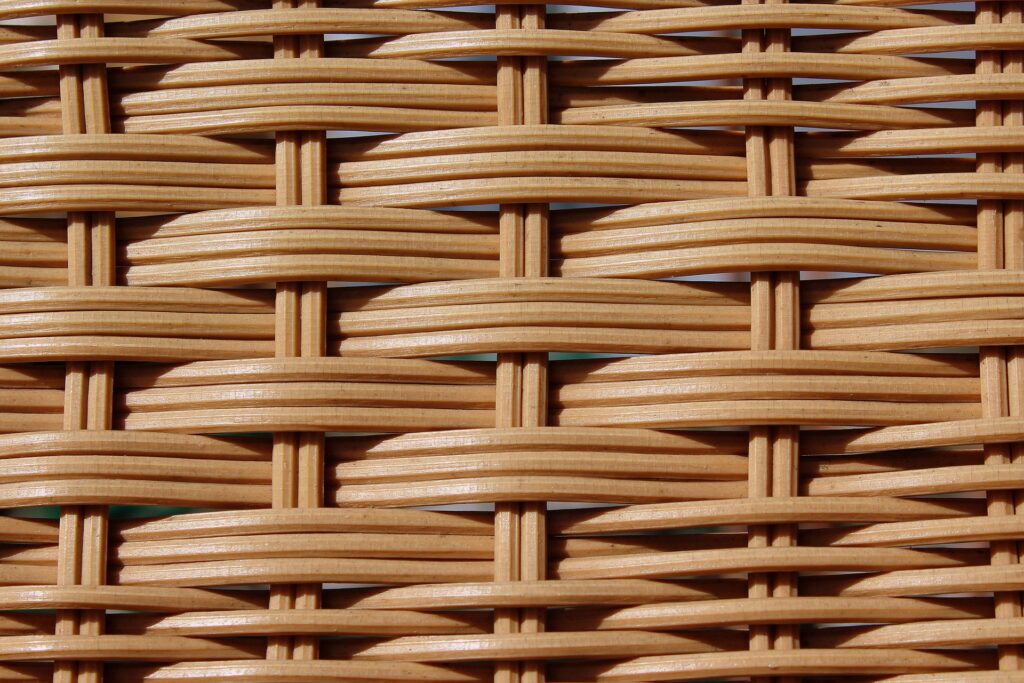When it comes to furnishing your patio, the question isn’t just how much it costs — it’s how long it lasts. The lifetime of outdoor furniture varies drastically between high-quality, well-crafted pieces and cheaper, mass-produced alternatives. So, what’s the real difference? And how does it affect your wallet over time?
Quality Outdoor Furniture: Built to Last 10–15 Years (or More)
High-end patio furniture made with premium materials like FSC-certified teak, powder-coated aluminum, marine-grade PE rattan, and Sunbrella fabrics can easily last 10 to 15 years, sometimes longer with proper care. These pieces are engineered to withstand UV rays, rain, humidity, and temperature fluctuations without warping, cracking, or fading.
What sets quality furniture apart: – Material integrity: Rust-proof frames, UV-stabilized fabrics, quick-dry cushions. – Craftsmanship: Precision joinery, welded frames, and hand-woven rattan. – Warranty and serviceability: Access to replacement parts, cushions, and covers even years after purchase.
Investing in quality furniture often comes with a higher upfront cost, but it pays off in longevity and fewer replacements.
Cheap Patio Sets: 1–3 Years of Compromise
On the flip side, budget outdoor furniture — often made from low-grade steel, PVC wicker, or polyester fabrics — may look appealing at first glance, but typically shows signs of wear within 1–3 years. Common issues include:
- Rusting or paint flaking on steel frames
- Wicker unraveling or cracking under UV exposure
- Cushions flattening or fading quickly
Additionally, cheap sets usually offer little to no after-sales support. Once a cushion wears out or a part breaks, you’re often left with no repair options.

Cost Per Year: A Better Metric for Value
Let’s do a quick math exercise:
| Furniture Type | Initial Cost | Lifespan | Annual Cost |
| High-Quality Set | $3,000 | 12 Years | $250/year |
| Cheap Budget Set | $800 | 2 Years | $400/year |
Over time, investing in durable, high-quality furniture actually results in lower annual costs, not to mention fewer headaches.
Environmental Impact & Sustainability
Choosing furniture with a longer lifecycle also means fewer items ending up in landfills. High-quality materials like recyclable aluminum and FSC-certified wood contribute to a more sustainable consumption model.
Final Thoughts
The lifetime of outdoor furniture is a critical factor that goes beyond aesthetics. Quality pieces become long-term companions for your outdoor space, while cheap alternatives often result in a cycle of frequent replacements and hidden costs.
At CG Outdoor, we often hear from customers who receive a quote from us—say, $2,000—and then mention they found a “similar” product for $1,000 elsewhere. We always respond with the same line: “Good luck.” In China, this endless price-cutting is known as “involution,” and the outcome is predictable: the product looks right in photos, but in reality, it’s not even worth its lowest price. Sometimes, the moment you open the package, you regret the purchase.
We don’t believe in this kind of meaningless price war. If a product’s price is cut in half, you must ask yourself—can it still be the same product? We doubt even you believe that answer. Customers buying cheap furniture are not making a savvy purchase—they’re opening a mystery box that often leads to disappointment.
At CG Outdoor, we never claim to be the cheapest. Competing on price alone is a race to the bottom. Our focus is to make products that are worth buying again, products that get recommended and re-ordered because of their enduring quality. We don’t make disposable furniture—we craft timeless, functional pieces that stand the test of time.
Explore durable collections at cgoutdoor.com.
Learn about fabric durability standards from Sunbrella’s official website



